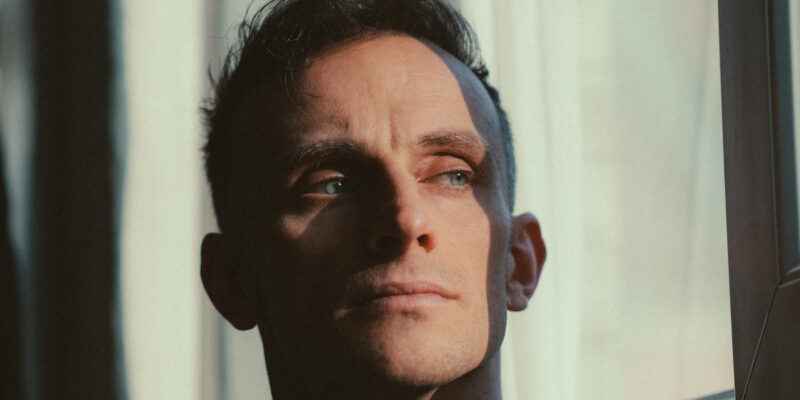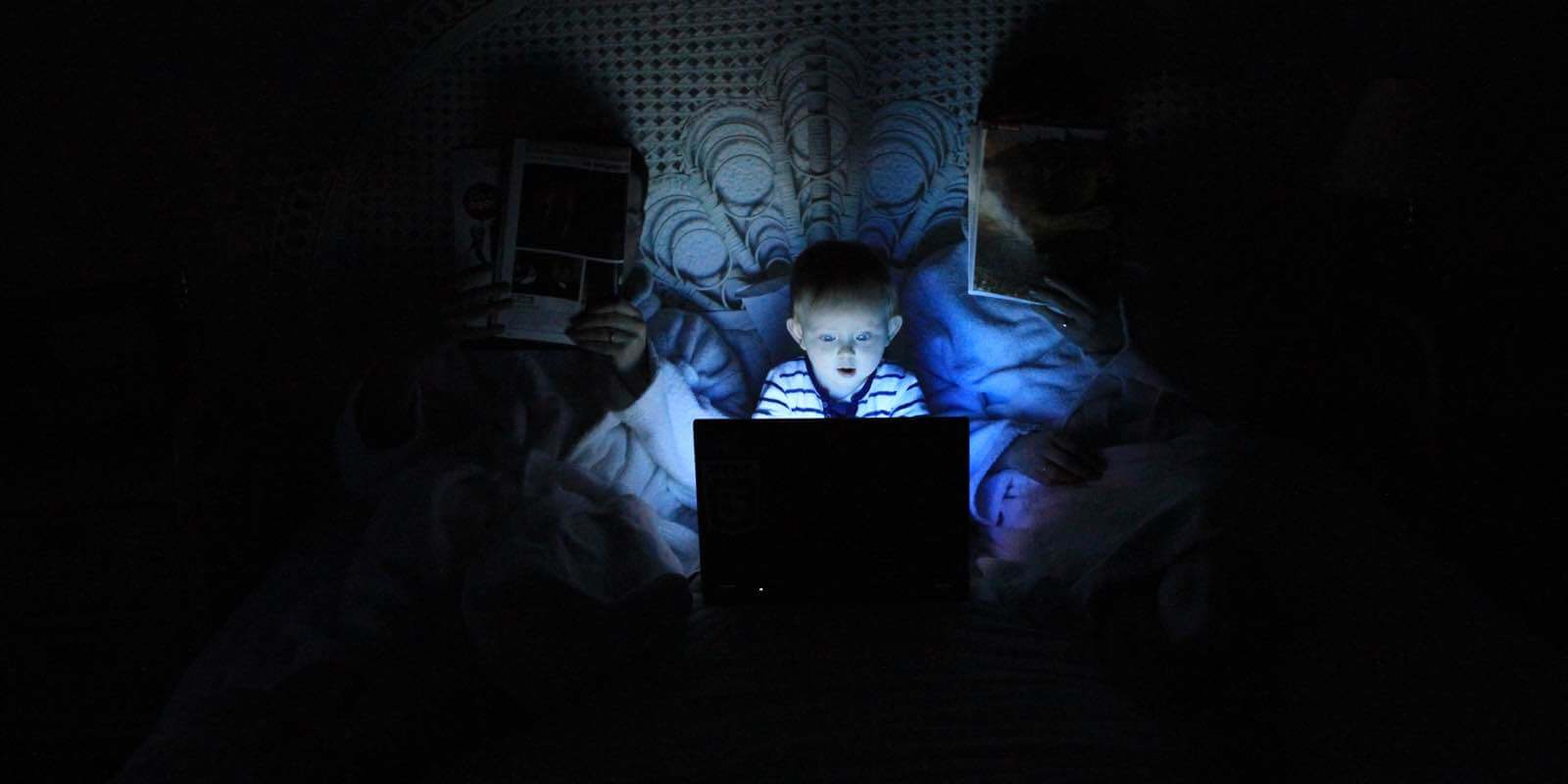I had a client once—we’ll call her Katie—who told me:
You know, the worst part about self-doubt isn’t the anxiety or lack of confidence… It’s the frustration. It’s maddening to know that I’m just as competent as everyone else I work with but to constantly feel like I’m not in their league.
And Katie was nothing if not competent…
After receiving a full scholarship to a very selective university and then graduating top of her class in physics, she landed a prestigious position doing classified research and development for the department of energy.
But more than just academically smart, Katie was charming, creative, wickedly funny, and in her spare time she even ran marathons! She had a close friend group, was in a satisfying romantic relationship, and was surprisingly insightful and self-aware about her own psychology and emotional life.
To be honest, after my first session with Katie, I was the one feeling insecure… How was I supposed to help someone who easily had 25 IQ points on me!
But despite all her talents and gifts, Katie struggled tremendously with insecurity at work:
- She was plagued by self-doubt and imposter syndrome, constantly comparing herself to her colleagues and doubting her abilities.
- She struggled to speak her mind during meetings and often held back what she knew to be good ideas for fear of looking dumb or foolish.
- And while she typically had no problem speaking in public or performing in front of others (did I mention she was captain of her high school debate team?), anytime she had to present work in front of colleagues, she would get anxious to the point of panic and frequently turned down opportunities to speak and present—which she always felt ashamed of afterward.
For the first month or so working together, we didn’t make much progress identifying what could be at the root of her issue with self-doubt and confidence issues at work.
My first thought was that, given how confined this issue was to work, maybe there was a strong structural component—she was a woman working in a predominantly male field so maybe there was a lot of subtle discrimination at the core of her anxiety? But the more we explored this, the more unlikely it seemed: Contrary to my expectations, she had grown up with a surprising number of female role models in science—including her mother who was a successful physicist herself; she had a number of female mentors and advisors throughout her education and career; and even in her current work, she had several close female colleagues and felt utterly supported by everyone. I remember her saying:
Yeah, in some ways I wish this was the result of discrimination because then I’d have an obvious explanation I could point to.
Another theory we explored was that she was actually unhappy in her chosen career and her anxiety was a symptom of the conflict between what she thought she “should” do (physics) vs what she really wanted to do deep down. I pushed pretty strongly to explore this one because in my work I’ve seen so many smart professionals like this who have internalized someone else’s vision for what they should be and chronically ignored their own passions and interests (think the son of three generations of doctors who from the age of three is groomed for the role despite secretly loving music and wanting to teach). But it didn’t take too long to move past this theory either—Katie was obviously deeply passionate about physics and her work. She was an utter and complete nerd for the topic and was pretty clearly doing her dream job.
At this point, I was again seriously doubting my own ability to help Katie and had even started considering referring her to someone else.
And then something she said offhandedly on the way out of a session clicked in my head:
It’s annoying, you know… If I’m so smart, how come I can’t figure this out?
“If I’m so smart…”
She was too smart!
It occurred to me that, in effect, Katie was outsmarting her emotional struggles by intellectualizing—using that big, powerful brain of hers to avoid how she was feeling emotionally by retreating into analytical thought.
I could have kicked myself for missing something so obvious. But like Katie, I had also fallen into the trap of assuming a problem was more complex than it really was.
The Root of Anxiety
At our next session, I proposed a new theory:
Katie, I don’t think you have a confidence problem; I think you have an emotional confidence problem.
She looked back at me with tired but slightly curious eyes and said:
Okaaaay… What does that mean, an emotional confidence problem?
So I shared my theory with her:
I don’t think you don’t lack confidence in your abilities to do the work—the physics, the presenting, the sharing ideas. As you, I, and anyone who knows you understands well, you’re an extremely competent and confident person generally.
She noted in agreement as I continued:
Where you lack confidence is in the presence of anxiety specifically. Precisely because you’ve been pretty confident most of your life, you haven’t had a lot of practice dealing with strong bursts of anxiety. In fact, as you mentioned, it wasn’t until your first job out of school that you began feeling so anxious—and even then, only when you’re at work.
I could see the wheels starting to turn as she listened. And while I don’t normally just lay out a theory like this to my clients, something about this situation nudged me on…
It’s not that you lack confidence in yourself as a person or as a physicist—you lack confidence in your ability to handle anxiety. And your go-to strategy for managing anxiety, unsurprisingly, is to quickly get into your head and start intellectualizing—using your analytical mind to try and solve the problem. And this has taken the form of self-doubt, negative social comparisons, worry, etc.
She quickly interrupted me at this point saying:
Okay, but I know self-doubt and worry only make me more anxious, so why do I keep doing it—especially now after you and I have looked at this so much?
I explained:
Worry, self-doubt, comparisons… I think these are all unhelpful forms of problem solving that you’re using as a way to avoid feeling and confronting your anxiety. Sure self-doubt makes you feel more anxious long-term. But in the very short term—the moment your anxiety first pops up—it serves the very useful function of helping you distract from that raw feeling of anxiety which is so uncomfortable and scary.
She sat there quietly for a minute taking it all in. Then, unsurprisingly, made an extremely insightful connection:
I’m like an addict but my drug is thinking. When I’m anxious and uncertain, I immediately start thinking because it distracts me from feeling bad.
Bingo!
Katie’s problem wasn’t her relationship with her colleagues or her own abilities; her problem was her relationship with her emotions—anxiety in particular.
Early on in her new job, she unconsciously learned that she could temporarily avoid bursts of anxiety by getting into her head in the form of self-doubt, which looked and felt like her old familiar friend analytical problem solving. The problem was that the more she did this, the more her long-term anxiety rose (chronic worry and self-doubt will do that to you). And at the same time that her long-term anxiety was rising, her emotional confidence was deteriorating because every time she got anxious, she immediately ran away from it, which was teaching her brain that she couldn’t handle anxiety.
Probably the most excited I’d ever seen Katie was when she took this theory and then made the connection that this explained not only her anxiety problem but also her frustration problem:
I was so frustrated because I don’t actually have a general confidence problem but I was insisting that I did. I was feeling anxious for a completely different reason… because I was dealing with anxiety the wrong way.
3 Skills Katie Practiced to Increase Her Confidence
Over the next couple of months, Katie and I worked almost exclusively on changing her relationship to anxiety and how she responded to it.
Of course, because she was so good at thinking analytically, it was difficult (and at times quite frustrating) for her to catch herself intellectualizing in response to anxiety. But she did get considerably better in only the span of a month or so.
Specifically, we worked on three skills to boost her emotional confidence:
- Emotional Awareness. Because she disliked anxiety so much, Katie’s tendency was to ignore it until it got so big that she had to confront it. Emotional awareness is about learning to identify and tune into difficult emotions early on when they’re relatively small. The benefit is that small bits of anxiety are much easier to deal with than huge mountains that accumulate precisely because we avoid them.
- Emotional Validation. Because anxiety feels bad, Katie had understandably developed a mindset that viewed anxiety as the enemy that she needed to eliminate or “solve.” Of course, this only perpetuated the anxiety by fostering anxiety about anxiety. Instead, we practiced approaching anxiety and validating it, which was often as simple as repeating a little mantra like this: Just because this feels bad doesn’t mean it is bad. She even developed a little nickname and personality for her anxiety: Penny Panic, which helped humanize the anxiety and make it easier to approach rather than avoid.
- Willingness. Because she was such a problem-solver by nature, Katie had a hard time leaving what felt like a problem (feeling anxious) alone and moving on without having “solved” it. But as she eventually internalized, you don’t solve anxiety; you learn to accept it, and as a result, it becomes much less bothersome over time. So the final stage of our work was for Katie to practice emotional endurance—being 100% willing to feel anxious and do what was right anyway. In her case, this often meant feeling anxious and speaking up at work anyway. Or feeling nervous about taking on a leadership role in a project, but accepting her nervousness and doing it anyway.
Within a few months, Katie was off to the races.
She still felt anxious at work from time to time. But her story about what that anxiety meant and how she responded to it was completely different. Instead of it seeing anxiety as a problem to be solved or an enemy to be eliminated, she saw her anxiety—Penny Panic—as a friend who showed up from time to time and, while often a bit confused, was always just trying to help. As a result, she got increasingly confident that she could allow her anxiety to “just be” and get on with her work anyway. In other words, she didn’t eliminate anxiety, but she did build emotional confidence—and the end result was that she put her self-doubt and imposter syndrome out of a job.
Key Lessons from Katie’s Story
Of course, Katie’s situation was unique in several ways. And not everyone’s struggle with confidence or self-doubt will resolve this quickly or in this particular way.
But, there’s a lot in her story that is pretty universal and can help anyone struggling with self-doubt and insecurity…
- Anxiety and insecurity are the result of our behaviors—often our mental behaviors. Katie felt like an imposter and lacked confidence at work because she was in the mental habit of constantly doubting herself. The mental habit of self-doubt leads to the emotion of anxiety. And when this cycle repeats often enough, it generates a belief that we’re not good enough or incompetent.
- Confidence is more situation-specific than we realize. Our tendency is to think of confidence as a personality trait: some people have it others don’t. In reality, though, confidence is far more situation-specific. Most people who struggle with “low self-confidence” actually have many areas in their lives where they are confident—they just don’t think about them much. And instead, they spend most of their time dwelling on the areas where they lack confidence.
- The root of all anxiety is avoidance. Ultimately, anxiety is the result of teaching our brain to fear something that isn’t actually dangerous. In Katie’s case, because she was avoiding anxiety by intellectualizing, she was teaching her brain to get anxious about being anxious. If you want to understand your anxiety on the deepest level, start by asking yourself: What am I avoiding?
- The key to overcoming anxiety is emotional confidence. Because anxiety and all its buddies like self-doubt and worry feel bad, we assume they are the problem and put all our energy into trying to solve and eliminate them. But as Katie learned, treating your anxiety like a problem only makes it a bigger problem. Instead, the key is to stop trying to avoid anxiety, and instead, focus on building confidence in your ability to handle anxiety and get on with life anyway. Anxiety isn’t the problem; it’s your relationship with anxiety that needs work.
- Confidence comes from behavior, not insights. Katie’s self-doubt didn’t disappear as soon as we understood why it was happening—that was just the beginning… What really drove change and helped Katie become more confident was committing to changing her relationship with anxiety and self-doubt: Practicing emotional awareness, building the habit of emotional validation, taking action on her values rather than intellectualizing. Insight is necessary but not sufficient for change. At the end of the day, we are what we consistently do.
Learn More
I hope you’ve found this case study helpful.
Here are a few more resources you might enjoy:





13 Comments
Add YoursThank you so much for sharing this case study! I always find it useful and interesting to hear real life stories and examples of experiences that helped individuals overcome their limiting beliefs. This case study specifically resonated with me. I felt that I was reading a story about me! Thank you again for sharing it and some great insights to overcoming it! It has put a clearer picture to what I needed to see and a “nick name” to humanize what I was feeling and avoiding!
I’ve reached a point where I am avoiding LIFE and LIVING. I KNOW I am not alone with this. Your message here is powerful. It doesn’t matter if you’re struggling in one small area or my case multiple areas….it is disabling and it can leave you questioning your existence and chronically stuck. My body woke me up the other day with a pounding heart, shortness of breath and dizziness. I spent the day in the ER only to learn that I was perfectly healthy. I have a broken heart that is crying out for attention and I do everything but VALIDATE it. I can’t continue and need the help of someone like you. I have tried going it alone and with the desperate help of friends and family and it’s not working. I don’t want to read anything more. More Content without the proper context is complete chaos. This article nailed it for me. Thank you! And to anyone this message has helped….may you find the peace within that surpasses all understanding.
Awesome! Really good stuff that resonates with me. I have intellectualized my thinking / thoughts for a long time. Validate / accept / face it move on. Repeat.
Nick I Love your work! So insightful, helpful, easy to understand. Your statement, “At the end of the day, we are what we consistently do.” really hit home. After years of trying to have a better relationship with my emotional body, I am finally realizing I’ve just been sitting on the surface all this time. This month I started approaching my emotions like an intense physical work out, which I love. It’s a little hard to describe, but when I feel the intensity of an emotion coming on I, 1st settle my mind. Remove it from the process. Then I work on feeling that intensity in my core. My energetic heart. My goal is to use this intensity to get to oneness. The beautiful thing about it is it has become a practice. A new habit. I do it all the time now and my old knee jerk reacting to situations has changed completely.
This was such an insightful read. Like Katie I have always been very confident in most areas of life until I started working and work has been my Waterloo with continuous self doubt, anxiety, fear, etc. What this also does is it kills the motivation to do anything extra and sometime even the bare minimum and so starts a cycle of thinking you are lazy therefore you don’t get things done. This has also affected my memory and I tend to forget all important things at work making it all the more hard to get out of the self perpetuating cycle.
Over the last month, I have started with small habits and change – 1) Brushing my teeth no matter what time I sleep 2) Exercising everyday even if on some days it’s a light workout 3) Being mindful of being kind in my words to others
This has now given me the ability to believe that change is possible. I plan to add small small everyday habits to this list not necessarily concerning work to build myself again and hopefully that would translate into affecting all other areas of life.
Nick, I find your articles surprisingly clear and helpful. Thank you.
Great case study Nick! It dovetails wonderfully in some of your courses like Creating Calm. Thank you for sharing it
Super informative article!
This was amazing . I felt like I was reading about myself . Thank you
Thanks a lot for giving me this case study. It’s always helpful and interesting to me to hear about real-life situations and stories that helped people get past their limiting views. I really connected with this case study. It felt like a story about me was being read to me! Thanks again for sharing it and the great advice on how to deal with it.
Overcoming self-doubt and imposter syndrome can be a challenging journey for anyone, including nuclear physicists who are often perceived as highly accomplished and intelligent individuals.
A place where the fun never stops, and each experience brings a new kind of thrill that you’ve never experienced.
A lovely video game with a unique perspective.